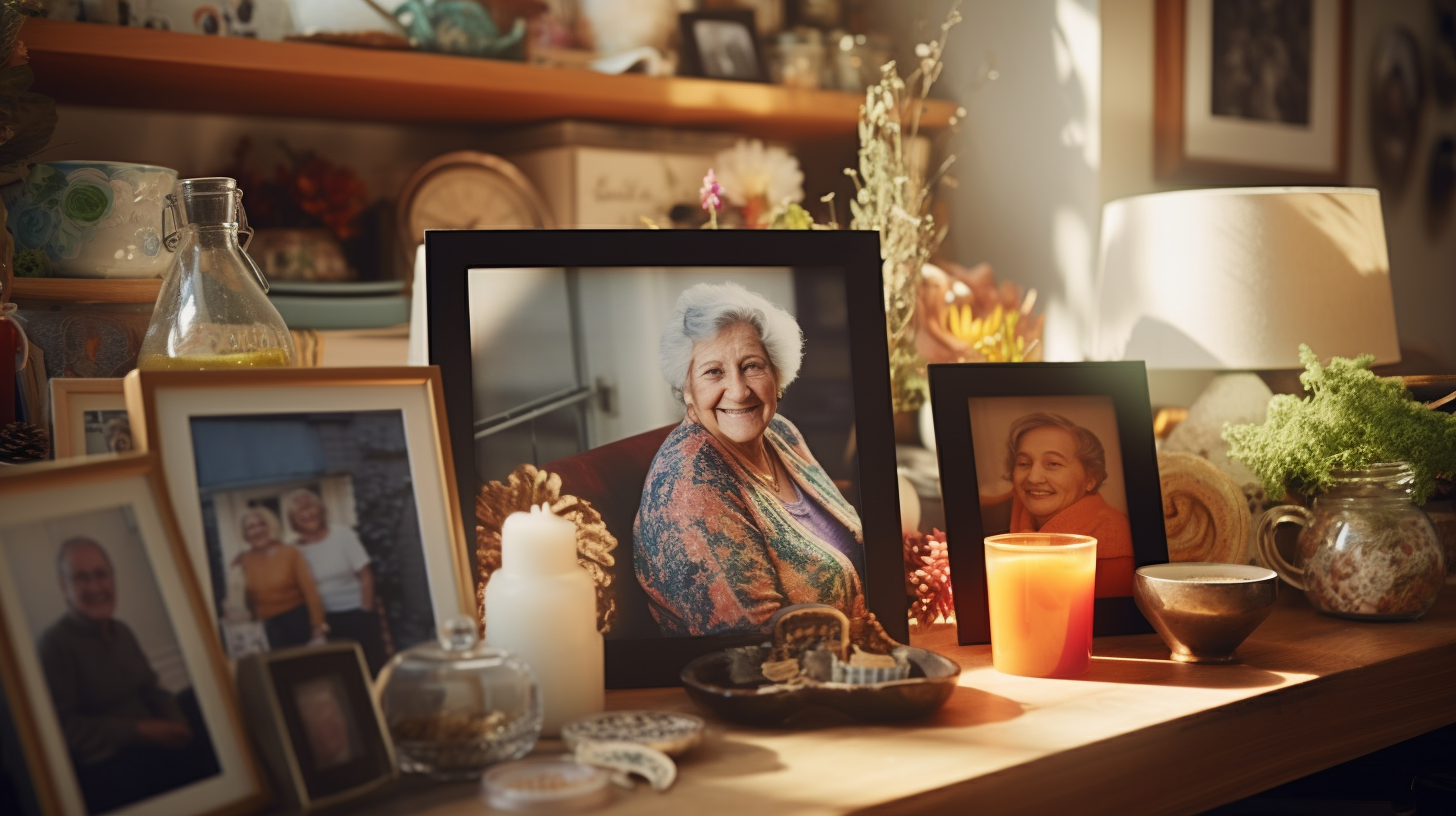The Emotional and Practical Aspects of Transitioning to Memory Care
Transitioning to memory care can be both emotionally challenging and require practical considerations, such as finding a facility that specializes in providing the necessary support and resources for individuals with memory loss. It is important to acknowledge the difficulties that may arise during this transition, as both the individual with memory loss and their caregivers may experience a range of emotions. It can be overwhelming to navigate through the changes and uncertainties that come with memory care. However, it is crucial to remember that you are not alone in this journey. There are caregiver support groups and resources available to help you through this challenging time. These resources can provide guidance, emotional support, and practical advice to ease the transition. SonderCare products, specifically designed for home care, can also play a significant role in providing comfort and assistance during this transition period.How SonderCare Products Can Ease the Transition
Navigating the transition to memory care can be made easier with the help of SonderCare’s specialized home care products. Our innovative equipment plays a crucial role in ensuring safety and comfort during this challenging time. One of our key products is the Aura Premium Hospital Bed, designed with a four-section mattress deck support platform for optimal positioning options. It also comes with a wireless hand control and a lockout control system to prevent accidental adjustments. For those who need more space, we offer the Aura Extra Wide Hospital Bed, with a weight capacity of up to 500 lbs. For the highest level of comfort and safety, our Aura Platinum Hospital Bed and Aura Platinum Wide Hospital Bed are top-of-the-line options. At SonderCare, we understand the emotional and practical aspects of transitioning to memory care, and our goal is to ease this transition by providing you with the best home care equipment possible.Learn About the Steps for a Smooth Transition to Memory Care
Are you or a loved one preparing for a transition to memory care? Learning about the steps for a smooth transition can help ease the process and ensure a positive experience. From preparing the family emotionally to handling legal and financial planning, and choosing the right memory care facility, understanding these steps will help you navigate this journey with confidence and compassion.Preparing the Family
As you prepare your family for the transition to memory care, it’s important to educate yourselves about the available resources and support systems. This can help alleviate some of the stress and uncertainty that often comes with this transition. One key aspect of preparing your family is providing emotional support during this time of change. It’s normal for family members to experience a range of emotions, including sadness, guilt, and anxiety. Encouraging open communication and creating a safe space for everyone to express their feelings can be incredibly beneficial. Additionally, seeking support from professionals, such as therapists or support groups, can provide guidance and reassurance. Remember, you are not alone in this journey, and there are resources available to help you navigate through the transition.| Tips for Providing Emotional Support During the Transition |
|---|
| 1. Encourage open communication and create a safe space for family members to express their feelings. |
| 2. Validate and acknowledge each person’s emotions, letting them know it’s okay to feel the way they do. |
| 3. Seek professional support, such as therapy or support groups, to help navigate through the emotional challenges. |
| 4. Take care of yourself as a caregiver, as your well-being is crucial in providing support to your family members. |
Legal and Financial Planning
It’s important to consider the legal and financial aspects of planning for your family’s transition to memory care. When it comes to legal considerations, it’s a good idea to consult with an attorney who specializes in elder law. They can help you navigate important documents such as power of attorney, living wills, and healthcare proxies. Financial preparations are also crucial. Make sure you have a clear understanding of the costs involved in memory care, including any potential long-term care insurance benefits you may have. It’s important to review your loved one’s financial situation, including their income, assets, and any existing trusts or estate plans. By taking these steps, you can ensure that your family is prepared for the financial and legal aspects of memory care. As you consider these important factors, it’s also essential to start thinking about choosing the right memory care facility.Choosing the Right Memory Care Facility
When it comes to choosing the right memory care facility for your loved one, the process can feel overwhelming. But with a little guidance, you can make this transition smoother and more successful. Here are some tips to help you through this important decision:- Research and visit multiple facilities: Take the time to research different memory care facilities in your area. Visit them in person to get a feel for the environment and see if it aligns with your loved one’s needs and preferences.
- Consider the staff and their expertise: Look for facilities with trained staff who specialize in memory care. Ask about their training and experience in dealing with Alzheimer’s and dementia.
- Assess the facility’s safety and security measures: Ensure that the facility has proper safety measures in place to prevent wandering and accidents. Look for secure entrances and exits, as well as monitoring systems.
- Take note of the activities and programs offered: Engaging activities and programs can greatly enhance your loved one’s quality of life. Look for facilities that offer a range of stimulating activities tailored to individuals with memory loss.
- Trust your instincts: Ultimately, trust your instincts when choosing a memory care facility. If something doesn’t feel right, don’t hesitate to explore other options.
What Do The Studies Say About Transitioning to Memory Care
Wondering what the studies say about transitioning to memory care? Well, research shows that the transition can have a significant psychological impact on both patients and their families. It’s important to understand the emotional and cognitive changes that can occur during this time. Additionally, studies have found that early planning and a smooth transition can provide numerous benefits, including improved quality of life for the individual with memory loss and reduced stress for their loved ones.Psychological Impact on Patients and Families
As a patient or family member, you may experience various psychological effects when transitioning to memory care. The process of moving to a memory care facility can be overwhelming and emotional, both for the person with dementia and their loved ones. Caregivers, in particular, may experience increased stress, anxiety, and feelings of guilt or sadness. It is important to acknowledge and address these emotions to ensure the well-being of everyone involved. Coping mechanisms such as seeking support from other caregivers or joining a support group can help alleviate some of the psychological burden. Additionally, practicing self-care, setting realistic expectations, and staying informed about the disease can also be beneficial. Remember, you are not alone in this journey, and there are resources available to help you navigate the challenges and emotions that come with transitioning to memory care.Benefits of Early Planning and Transition
Planning ahead and making the transition to memory care early can provide you with numerous benefits and peace of mind. Here are some reasons why early planning is important:- Allows time to research and choose the best memory care facility for your loved one.
- Provides an opportunity to gather important documents and financial information.
- Gives your loved one time to adjust and become familiar with the new environment.
- Allows for the implementation of emotional support systems to help both you and your loved one through the transition.
How Can Families and Patients Improve the Transition to Memory Care
To improve the transition to memory care, families and patients can focus on open communication and involving the patient in the decision-making process. By openly discussing concerns, preferences, and expectations, everyone can work together to create a personalized care plan that meets the patient’s needs. Including the patient in the decision-making process empowers them to feel heard and respected, making the transition smoother and more comfortable for everyone involved.Open Communication
You can foster open communication with your loved one by regularly checking in and discussing any concerns or needs they may have. This will help create a safe and supportive environment where they feel comfortable expressing their thoughts and emotions. Here are some ways to encourage open communication:- Listen actively: Show genuine interest in what your loved one has to say and give them your full attention.
- Validate their feelings: Let them know that their emotions are valid and that you understand and empathize with them.
- Be patient: Give your loved one time to express themselves, without interrupting or rushing them.
- Ask open-ended questions: Encourage them to share more by asking questions that require more than a simple yes or no answer.
Involving the Patient in the Decision-making Process
When it comes to making decisions about transitioning to memory care, it is important to involve the patient in the process. Informed decision making allows the patient to have a sense of control and feel respected in their own care. Start by having open and honest conversations with the patient about their needs, concerns, and desires. Listen to their preferences and involve them in finding the best memory care facility that aligns with their values and goals. It is also crucial to involve caregivers in the decision-making process. They can provide valuable insights and support to the patient. By involving both the patient and caregivers, you can ensure that the transition to memory care is a collaborative effort that prioritizes the well-being and autonomy of the patient.SonderCare’s Role in Facilitating Transitions to Memory Care
At SonderCare, we understand that transitioning to memory care can be a challenging and emotional process for both you and your loved one. Our role is to provide the support and resources you need to make this transition as smooth and comfortable as possible. With our range of hospital beds, specifically designed for comfort and safety, and features like wireless hand controls and bed exit alarm systems, our products can help ease the transition and provide peace of mind.How SonderCare Beds Provide Comfort and Safety
The Aura Platinum Wide Hospital Bed offers all the same features as the Aura Platinum Hospital Bed, but with more space for your comfort and safety. With SonderCare beds, you can experience the following features and benefits:- Four-section bed support platform and anti pressure sore mattresses: This allows for a wide range of positioning options, ensuring your comfort and reducing the risk of pressure sores.
- Wired hand control: Easily adjust the bed to your desired position without any hassle or inconvenience.
- Backup battery system: This ensures that the bed can still be operated even during power outages, providing you with continuous care.
- Lockout control system: Prevent accidental adjustments and ensure your safety while using the bed.
Features of Aura Beds That Make Care Transitions Easier
Experience the ease and convenience of SonderCare’s Aura beds, designed with features that simplify transitions. Our specialized beds are thoughtfully crafted to provide comfort and safety during the challenging transition to memory care. With a four-section mattress support platform, wireless hand control, and backup battery system, our Aura beds offer a wide range of positioning options and ensure peace of mind. But don’t just take our word for it – hear from families who have experienced the benefits firsthand. Testimonials from our satisfied customers highlight the improved quality of sleep and enhanced mobility that our Aura beds provide. Designed with your loved one’s needs in mind, SonderCare’s Aura beds are a reliable choice for those seeking comfort, convenience, and peace of mind during the transition to memory care.Testimonials: Families Who Successfully Transitioned Using SonderCare Products
Make a smart choice for your loved one’s comfort and peace of mind by hearing from families who successfully transitioned using SonderCare products. Here are some of the benefits they experienced:- Improved comfort and safety: Families have noticed a significant improvement in their loved one’s comfort and safety after using SonderCare hospital beds. The four-section mattress support platform and the wireless hand control allow for easy adjustments, providing optimal positioning options for enhanced comfort.
- Increased independence: With SonderCare products, families have seen their loved ones regain a sense of independence. The intuitive controls and features make it easier for users to perform daily tasks on their own, promoting a greater sense of autonomy.
- Peace of mind for caregivers: SonderCare products not only benefit the users but also provide peace of mind for their caregivers. With features like the bed exit alarm system and the lockout control system, caregivers can rest assured knowing their loved ones are safe and secure.
- Excellent customer service: Families have praised SonderCare for their exceptional customer service. From installation and setup services to ongoing support, SonderCare ensures that users and their families receive the assistance they need throughout the transition process.
How to Recognize Signs That It’s Time To Transition for Memory Care
Recognizing signs such as changes in behavior or personality, safety concerns, caregiver burnout, and decline in physical health can help you determine if it’s time to consider memory care for your loved one. It’s important to be aware of the early signs of memory decline so that early intervention can be sought. Memory care facilities specialize in providing the necessary support and assistance for individuals with memory loss or cognitive impairments. They offer a safe and secure environment where trained professionals can ensure the well-being and quality of life of your loved one. By recognizing these signs and considering memory care, you are taking a proactive approach to ensure the best possible care for your loved one. Remember, early intervention is crucial in managing memory loss and providing the appropriate level of support.Common Challenges During the Transition to Memory Care
Transitioning to memory care can present a range of common challenges. You may encounter emotional resistance from your loved one, as they may be resistant to leaving their familiar home environment. Additionally, you may face logistical hurdles, such as finding the right memory care facility and navigating the process of moving your loved one’s belongings.Emotional Resistance
As a caregiver, it’s important to understand that emotional resistance can be a common response when transitioning to memory care for your loved one. This can manifest in various ways, such as denial, anger, sadness, or anxiety. It’s crucial to remember that these emotions are normal and part of the adjustment process. To help you navigate these emotional challenges, here are some coping strategies:- Validate your loved one’s feelings and emotions
- Provide a safe and supportive environment for open communication
- Encourage engagement in activities that bring joy and comfort
- Seek support from a support group or professional counselor
Logistical Hurdles
Navigating the logistical hurdles of transitioning your loved one to memory care can be challenging, but with proper planning and support, you can ensure a smooth and successful transition. Transitioning to memory care comes with its own unique set of challenges. You may encounter difficulties with finding the right facility, managing finances, and coordinating the move itself. It’s important to have a support system in place during this time. Reach out to family, friends, and professionals who can provide guidance and assistance. Utilize resources like support groups and online forums to connect with others who have gone through similar experiences. Remember to take care of yourself throughout this process as well. Transitioning to memory care can be emotionally and physically demanding, so make sure to prioritize self-care and seek support when needed.Navigating the transition to memory care can be challenging, but with proper planning and emotional support, it can become a smoother process for both the individual and their loved ones. It is essential to have a comprehensive plan in place, including finding the right memory care facility, creating a support network, and addressing legal and financial matters. Additionally, providing emotional support and understanding throughout the transition can greatly help individuals adjust to their new environment and ensure their well-being. Ready to make the transition to memory care easier? Visit SonderCare for a range of products designed to enhance the quality of life for those with memory loss. Our hospital beds, including the Aura Premium and Aura Platinum models, offer comfort, safety, and intuitive controls. Take the next step towards a better home care experience with SonderCare.
- example
Frequently Asked Questions About Memory Care Transitions
Choosing a hospital bed for your home involves considering factors like the user’s medical needs, bed type (manual, semi-electric, electric), adjustability features, mattress compatibility, size, budget, and available space.
Consult with the user’s healthcare provider to understand their medical condition, mobility limitations, and specific requirements. This information will guide you in selecting a bed that addresses their needs.
Hospital beds come in manual, semi-electric, and electric models. Manual beds require manual adjustments, semi-electric beds have electric head and foot adjustments, and full-electric beds offer complete electric adjustability.
Adjustability features are crucial as they allow the user to find comfortable positions for sleep, resting, and activities. Look for beds with smooth adjustments for the head, foot, and overall height.
Hospital beds come in various sizes, similar to regular beds (twin, full, queen). Choose a size that fits the user comfortably and fits well within the available space.
Set a budget based on the user’s needs and financial capacity. Consider the cost of the bed itself, any necessary accessories, and potential ongoing costs for maintenance and replacement parts.
Measure the available space in the room where the bed will be placed. Ensure there’s enough room for the bed to be adjusted and for caregivers to move comfortably around it.
If possible, try out the bed at a local medical supply store or showroom to assess its comfort and features. If not, read customer reviews and research thoroughly before making a decision.
Look for beds with sturdy frames, lockable casters, secure side rails, and emergency power-down options. These features ensure the user’s safety during adjustments and transfers.
Follow the manufacturer’s maintenance guidelines and keep the bed clean and well-lubricated. Regularly inspect for any loose screws or parts, and address any issues promptly to ensure the bed’s longevity.
Yes, involving the healthcare provider ensures that the chosen bed meets the user’s medical needs and provides the necessary comfort and support. They can offer valuable recommendations based on the user’s condition.
















